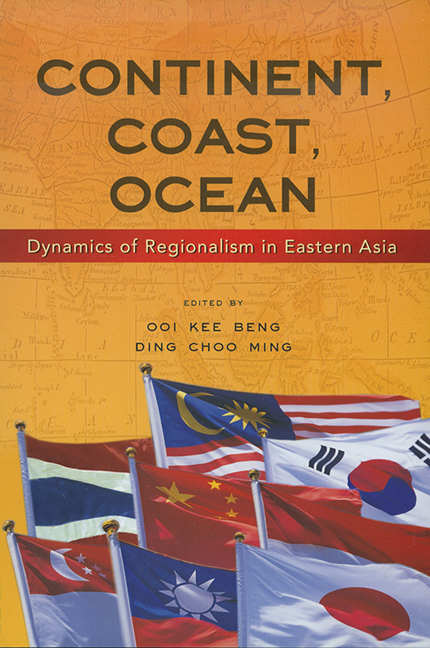Book contents
- Frontmatter
- Contents
- Foreword by Shamsul A.B.
- Contributors
- Introduction
- PART ONE PUTTING JAPANESE IMPERIAL HISTORY TO REST
- 1 The Success of Japan's Multi-Directional Diplomacy in Modern Times
- 2 War Memories and Japan's Relations with East Asian Countries
- PART TWO THE ECONOMICS OF REGIONAL INTEGRATION
- PART THREE INTER-REGIONALISM AND REGIONALISM
- PART FOUR NEW KNOWLEDGE, NEW PROBLEMS, NEW SOLUTIONS
- Index
2 - War Memories and Japan's Relations with East Asian Countries
from PART ONE - PUTTING JAPANESE IMPERIAL HISTORY TO REST
Published online by Cambridge University Press: 21 October 2015
- Frontmatter
- Contents
- Foreword by Shamsul A.B.
- Contributors
- Introduction
- PART ONE PUTTING JAPANESE IMPERIAL HISTORY TO REST
- 1 The Success of Japan's Multi-Directional Diplomacy in Modern Times
- 2 War Memories and Japan's Relations with East Asian Countries
- PART TWO THE ECONOMICS OF REGIONAL INTEGRATION
- PART THREE INTER-REGIONALISM AND REGIONALISM
- PART FOUR NEW KNOWLEDGE, NEW PROBLEMS, NEW SOLUTIONS
- Index
Summary
INTRODUCTION
East Asia has always been a region that has exerted a strong influence on international history. In ancient times, it was the site of the Chinese civilization and the great Chinese empires. In modern times, it was the place where great powers such as Britain, France, Holland, Portugal, Spain, the United States, Japan and Russia competed for political influence and colonial domination. This struggle led to the Pacific War that left many bitter memories behind. During the succeeding Cold War, it became the arena for ideological conflicts between the East and the West, led by the USSR and the United States respectively. Civil wars dragged on in the Korean Peninsula, the Chinese mainland and in Southeast Asia. With the end of the Cold War in 1989 and the resolution of the Cambodian conflict in 1993, the region became stable and started to experience impressive economic growth. Japan rose like a phoenix from the ashes of war to become an economic giant, second only to the United States. Soon, the four little dragons — Hong Kong, Taiwan, South Korea and Singapore — followed Japan's growth, later to be tailed by Southeast Asian countries such as Thailand, Malaysia, Brunei, the Philippines and Indonesia.
In the meantime, the region also became home to newly established multilateral organizations such as the Association of Southeast Nations (ASEAN), the ASEAN Regional Forum (ARF), the Asia-Pacific Economic Cooperation (APEC) and ASEAN+3 (Japan, South Korea and China). There was even a proposal for an East Asian Economic Grouping that would have excluded Western powers, but which failed because of U.S. opposition. Taken as a whole, the region was an economic powerhouse until it was hit by the 1997 financial crisis. Since then, it has been recuperating and most signs show that it is re-emerging as an area of high growth. Although the security scenario has changed since the collapse of the USSR, some Cold War remnants still remain. U.S.-Japan relations are still central to regional security, and U.S. bilateral security frameworks in the region still remain intact. The United States retains its military presence in Okinawa and South Korea, and overall U.S.-China bilateral relations still remain cordial despite hiccups over human rights, and fears of a power struggle between the two.
- Type
- Chapter
- Information
- Continent, Coast, OceanDynamics of Regionalism in Eastern Asia, pp. 27 - 56Publisher: ISEAS–Yusof Ishak InstitutePrint publication year: 2007



